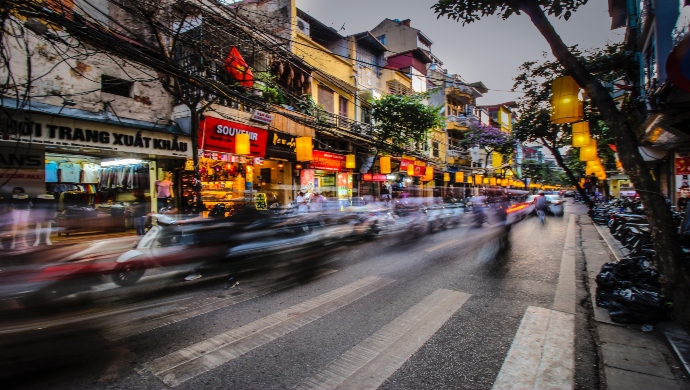
Cento Ventures, the venture capital (VC) firm focussing on emerging technology startups in Southeast Asia, has shared its Southeast Asia Tech Investment Report 2019.
In 2019, the report highlights some changes in the landscape of technology investment in Southeast Asia, with the total amount invested in tech companies in the region in 2019 totalled US$7.7 billion.
Despite the big number and slew of enormous deals, the total is noticeably lower than the US$12 billion recorded in 2018. The only difference is that many of the deals include smaller VC firms’ participation, showing a positive increase.
Deals made
For smaller deals (less than US$50 million), they made up a new record of US$2.4 billion, up from US$1.5 billion in 2018. For larger deals, there is quite a decrease in the amount deployed compared with the year 2018, with US$5.3 billion made in 2019, compared to US$10.5 billion made in 2018.
The smallest type of deals (less than US$0.5 million and typically seed rounds) has more than doubled in number and nearly doubled in value. While for deals between US$0.5 million and US$10 million (typically Series A & B rounds) increased by just over 50 per cent in both number and value.
The follow-on funding rates also improved. The 2013 cohort shows improvement with a second follow-on round rate of 26 per cent (and a third follow-on round rate of 14 per cent). The 2014 and 2015 cohorts also show improvement – most notably the 2014 cohort where the third follow-on round rate rose to eight per cent (compared to four per cent in 2018).
Trends in tech deals
As for recorded trends, one of the most noticeable trends was a spike in the number of deals reported earlier in 2019 which summed the total of 608 tech VC deals by the end of the year.
2019 saw a number of large investment rounds by major tech firms. Most notably was Traveloka, which raised US$420 million and VNPay’s US$300 million. Less familiar names also announced major rounds, such as Ruangguru, Kredivo, Advance.ai, Tiki.vn, and Scommerce.
Also Read: Traveloka reveals the greatest challenges engineers face
However, for unicorns such as Grab and gojek, last year showed smaller investment received. The trend with these unicorns for last year was to create separate units such as in financial services and raise their own capital independently of their parents’ companies. Cento predicted that the lower amount of invested capital will likely be temporary.
Less bias, more diversification
The report also highlights investments in Vietnam and Thailand-based startups that had had significant growth, signifying some changes to the previous bias of investment toward Indonesia and Singapore-based startups.
Vietnam-based startups increased the most, making up 18 per cent (or US$741 million) of the country-specific capital deployment in 2019. This, according to the report, is a huge jump over 2018 where it only accounted for four per cent (or US$287 million). Thailand has also seen a rise in investment from US$80 million in 2018 to US$130 million in 2019.
Indonesia captured a smaller proportion of the total capital invested, which decreased from 76 per cent in 2018 to 59 per cent in 2019. There was a decline in the amount invested in Indonesian startups from US$4 billion in 2018 to US$2.4 billion in 2019, although the number of deals done in the country increased slightly.
Investment in startups in Malaysia, Singapore, and the Philippines was consistent with previous years.
New sectors attracting more interest
Even though most investments in the region continued to be into companies that cover ‘multi-verticals’ or diverse digital businesses such as Grab and gojek, and online retailers, 2019 showed some diversification by sector.
Well-established sectors such as travel showed an increase, driven by the Traveloka deal. Emerging sectors such as financial services and payments grew strongly, which when combined received nearly US$1 billion in new capital.
Newer sectors such as healthcare, logistics, and education also benefited from increased investor interest.
Increase in the number of exits, total proceeds remain steady.
Liquidities and exits
As for the half-year mark, the number of liquidity events increased in 2019. For the full year, it reached 64, exceeding 2018’s total of 56.
Total proceeds from liquidity events in 2019 was US$2.2 billion, equalling 2018’s amount with the largest exits done by Bigo – acquired by YY Inc for US$1.45 billion (although this deal may be a bit overstated as there’s no information on the proportion of the deal); 701 Search – acquired by Carousell for US$272 million (a mix of cash and shares), and Wavecell – acquired by 8×8 for US$125 million.
Also Read: Why 2020 and the next decade looks good for business in Southeast Asia
Regardless, these are significant deals and show that corporate acquirers are actively acquiring startups from Southeast Asia. A typical profile of a liquidity event in Southeast Asia in 2019 remains a trade exit to a buyer from Asia, with deal proceeds of less than US$100M.
Looking ahead to 2020
Centro concluded that Southeast Asia in 2019 has remained a very attractive region for tech investors. With strong growth in investment at most deal sizes, and also a welcome diversification of investment into startups in more countries and in different sectors, it can be expected that these positive trends to continue as the fundamentals of the region remain positive.
After all, the region continues to be a large and rapidly digitising population that demands better online services, combined with many industry sectors adopting new technology to transform their operations. Whether 2020 sees a return of the same velocity of huge deals that we saw in 2018 is uncertain.
While there is a new wave of large tech startups emerging, there is also increasing discussion about prioritising profitability over growth, and hence the requirements for investor capital may be lower.
–
Image Credit: Florian Wehde on Unsplash
The post Report: SEA digital investment climate to become more diverse, “strong” growth in most deal sizes appeared first on e27.